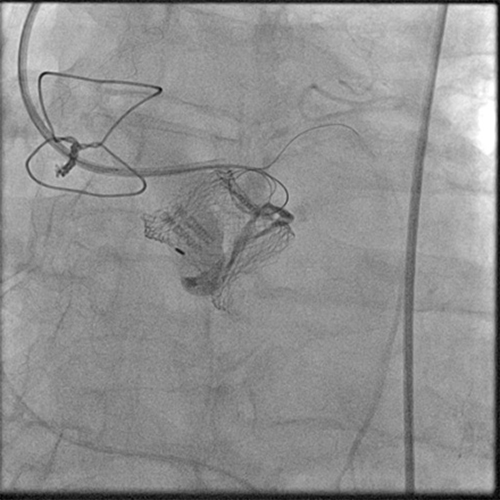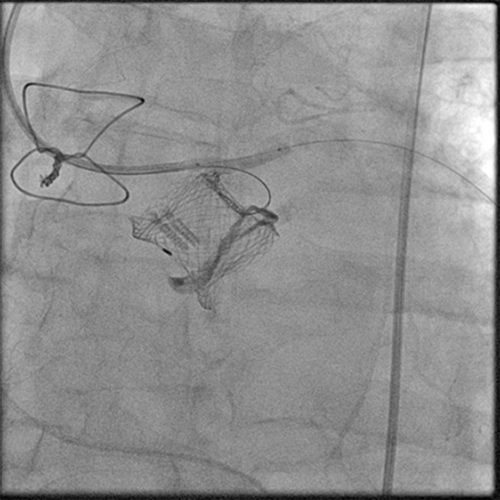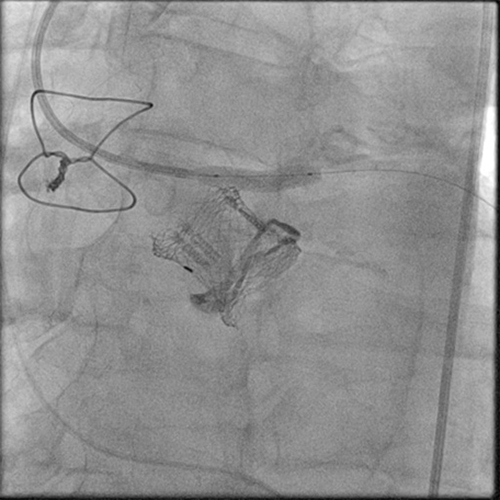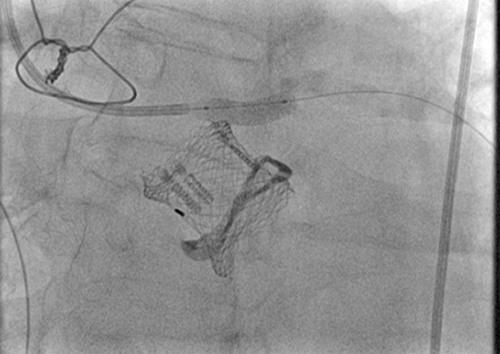
Valve-in-valve TAVI

during PCR London Valve 2016
Roberto Nerla – Fausto Castriota – Alberto Cremonesi
Patient description:
77 years old male with previous aortic valve replacement (MItroflow n.23 2009) presenting with significant bioprosthesis degeneration (severe stenosis and moderate aortic regurgitation).
Initial situation:
Basal aortogram showing the presence of a shallow left coronary sinus with low origin of left main indicating a high risk of coronary occlusion. For this reason, a repositionable device (Lotus valve) was chosen for valve-in-valve TAVI.
Procedure
Valve-in-valve TAVI
Procedure description:
A Lotus 23 mm valve was successfully deployed with no residual leak and no gradient.
However, 90 minutes later cardiac arrest occurred; the aortogram revealed left main occlusion.
After putting a wire in the left cusp to stabilize the guidling catheter (look the video below), two drug-eluting stents were deployed according to the ‘chimney technique‘, that we described for the first time (published by PCRonline on Twitter) as the translation of a peripheral strategy to secure renal arery patency after EVAR to valve-in-valve procedures.
Final results:




Final results showing normal flow into left main. The patient was safely discharged without any complication. He had an angiogram at 6-month follow-up confirming the patency of left main and the good result of valve-in-valve procedure.
